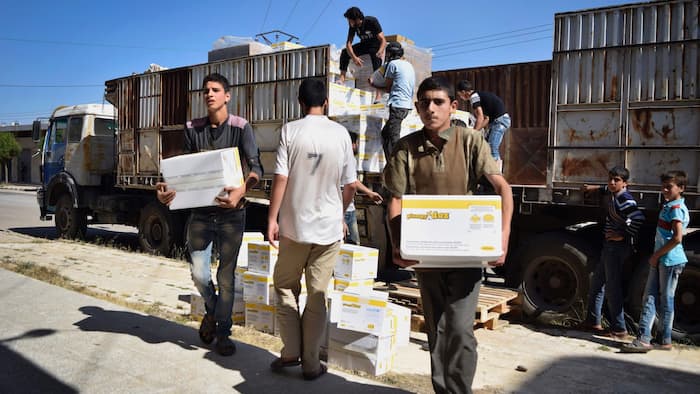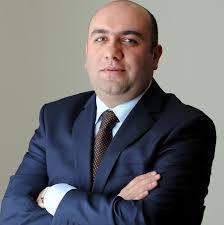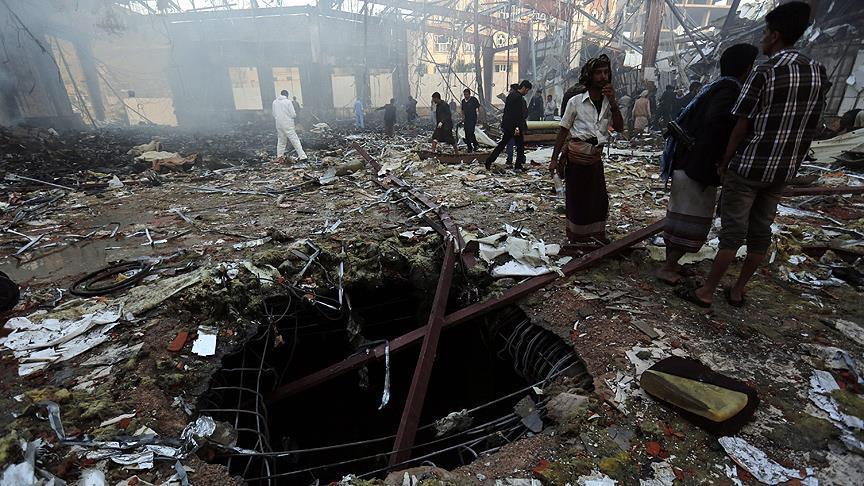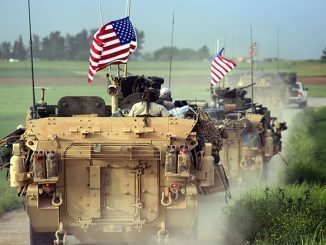
A news report by the New York Times showed recently that the United Nations has paid millions of dollars to the owners of a private Russian airline company who were barred from doing business with the international organization 10 years ago over bribery charges.
The Moscow-based company, Abakan Air, is the only authorized civilian provider of airdropped humanitarian aid and the sole place it flies in Syria is over a regime-held town that has no other way to receive food.
The owners, Nikolai Ustimenko and his son Pavel Ustimenko, were entangled in a financial scandal with the United Nations nearly 10 years ago, when an internal inquiry recommended no further dealings with them.
The story of how the Ustimenkos came to be the providers of the only airdropped humanitarian relief service in Syria is a mix of politics, profit motive and United Nations bureaucracy, the report says.
It offers a window into the way Assad regime and its Russian ally have used the aid machinery of the United Nations, even as the organization’s top officials have accused Assad regime of breaking international humanitarian law.
According to the report, Assad regime has blocked United Nations aid convoys from delivering food and medicine to besieged opposition-held cities across the country, in a breach of international humanitarian law. It has allowed Abakan Air, which has a contract with the World Food Program, a United Nations organization, to airdrop food to 110,000 people in Deir ez-Zor, a regime-controlled town besieged by the Islamic State. It is the only besieged town that gets humanitarian airdrops.
The World Food Program said that it had sought competitive bids for the job and that Abakan emerged as the sole bidder.
“Only Abakan indicated their readiness and capability to perform this specialized operation,” Abeer Etefa, a spokeswoman for the World Food Program, said in an email sent to the New York Times. “Other operators/brokers had cited lack of experience in high-altitude airdrops and/or security concerns for declining to operate into Syria.”
Ms. Etefa added that the company had been working with the United Nations in South Sudan and had passed the organization’s safety evaluation and “due diligence checks for operations” there. She did not comment on how the company could have passed those internal checks when its owners had been implicated in a financial scandal with the United Nations, the report concludes.
Delivering aid based on political affiliation
A spokesman for the United Nations, Stéphane Dujarric, said Thursday the company “did not disclose any association with a company or individual prohibited from being engaged in procurement,” as it is required to. “The case will be brought forward to the Vendor Review Committee for deliberation,” Mr. Dujarric added.
Nikolai and Pavel Ustimenko were named in a multimillion-dollar kickback scheme at the United Nations in 2007. At that time, an internal United Nations investigation concluded that they had “engaged in criminal acts, including bribery, corruption and money laundering.” Through another company, Avicos, they were selling aviation insurance to airlines that contracted with the United Nations.
Russian companies are well known for securing aviation contracts with the United Nations. But the case of Abakan Air in Syria is unusual because Russia is a combatant in a conflict that the United Nations has tried and failed to end.
Critics say that while the United Nations has to be pragmatic in using companies that agree to operate in dangerous war zones, the use of a Russian company to feed people in a government-held town can fuel the suspicions of those who already regard the United Nations as an ineffective intermediary in the conflict.
“We already know aid is being provided based on people’s perceived political affiliation,” said Widney Brown, program director for Physicians for Human Rights, which has been an outspoken critic of Russian and Syrian bombings of hospitals. “Then if aid is being delivered by a party to the conflict, it reinforces the perception — and the reality — that the delivery of aid is highly politicized.”
According to the United Nations’ latest estimate, more than 800,000 Syrians live in what it considers to be besieged areas; activists say the number is higher. Most of those people live in rebel-controlled areas besieged by government soldiers and pro-government militia members. Deir al-Zour is unusual: It is held by Syrian forces but surrounded by members of the Islamic State.



